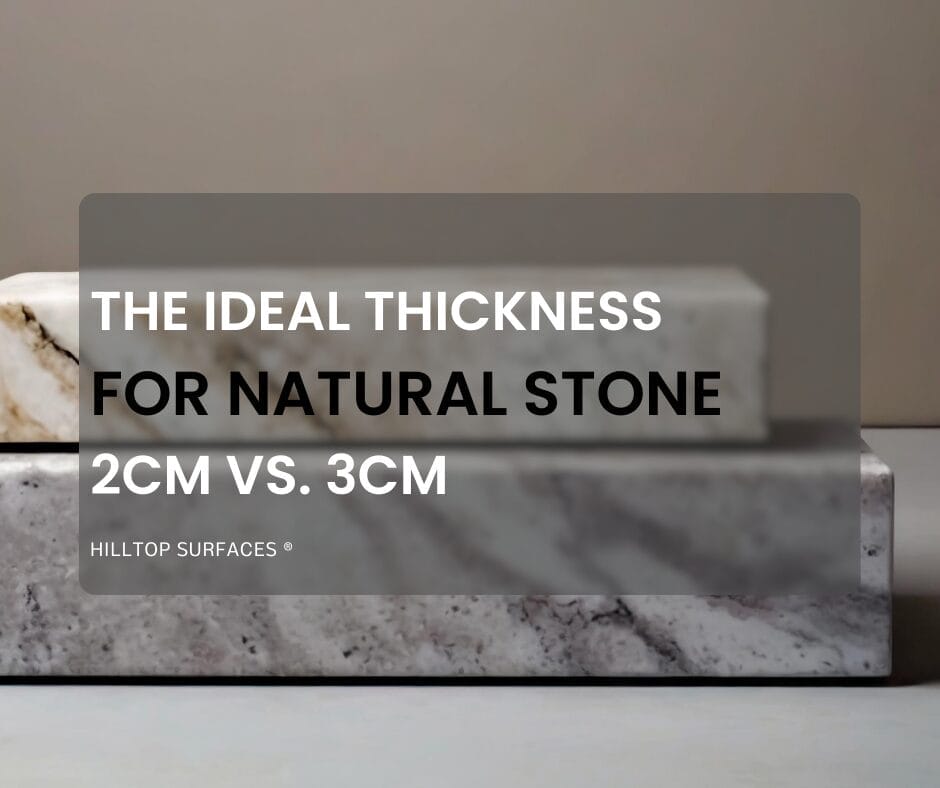Introduction
Whether you have remodeled your home or just moved into a new one, maintaining the elegance of your Granite Countertops is a top priority. This article serves as a comprehensive guide for homeowners aiming to pinpoint the indicators that suggest it’s time to reseal your Granite Countertops. From understanding the initial sealing process to recognizing signs of wear, we’ll navigate through the nuances to ensure your granite surfaces continue to stand the test of time.
Granite Countertop Sealer
Granite Countertops undergo an essential sealing process during fabrication, designed to protect against stains and enhance durability. This initial seal is foundational to the Countertop’s longevity.
Absorption Test to Find Out If Your Granite Needs to Be Sealed
How can you tell if a Granite Countertop needs to be resealed? It is very simple. To determine if your Granite countertops are still adequately sealed, perform a straightforward water drop test. If droplets are absorbed rather than forming beads, it indicates a potential compromise in the seal’s effectiveness.
Step-by-Step Guide: How to Perform an Absorption Test on Granite Countertops
- Clean Surface: Ensure your granite countertop is clean and free of any debris or spills. Wipe it down with a mild, pH-balanced cleaner and let it dry completely.
- Select Test Areas: Choose a few different spots on the Countertop to conduct the water test. Focus on areas that are frequently used or prone to spills.
- Water Droplet Application: Place a few drops of water (about the size of a quarter) onto the selected spots. Be strategic in testing both high-traffic and less-used areas.
- Observe Reaction: Watch how the water behaves on the surface. If it forms round beads and doesn’t absorb into the granite after 15 minutes, the seal is still effective. If it soaks in, indicating absorption, it may be time to consider resealing.
Pay attention to any alterations in color or the presence of dark spots on your granite surface. These visual cues often signify wear in the seal and may necessitate resealing to restore the countertop’s aesthetic appeal.
How do you tell if your granite countertops are sealed?
You can tell if your Countertop is sealed by performing the absorbtion test described above.
How Often to Reseal Granite Countertops
When should you reseal Granite Countertops? The frequency of resealing granite countertops depends on several factors, including usage, cleaning practices, and the type of sealant used. As a general guideline:
Every 1 to 3 Years: In most cases, it’s recommended to reseal granite countertops every 1 to 3 years. This timeframe ensures that the protective seal remains effective in preventing stains and maintaining the stone’s integrity.
High-Traffic Areas: Countertops in high-traffic areas, such as kitchens, may benefit from more frequent resealing, potentially every 1 to 2 years. The constant exposure to spills and cleaning agents can expedite the wear on the seal.
Sealant Type: The type of sealant used can impact the resealing frequency. Some advanced sealants may provide longer-lasting protection, allowing for less frequent resealing.
Visual Inspection: Conduct a simple water test to assess whether the seal is still effective. If water droplets are absorbed rather than forming beads on the surface, it’s an indication that resealing may be necessary.
Surface Changes: Keep an eye on changes in the appearance and feel of the granite surface. If the countertop becomes more porous, develops dark spots, or feels rough, these are signs that the seal may need to be refreshed.
What happens if you don’t seal your granite countertops?
Stains and Etching:
Neglecting to reseal your Granite Countertops can lead to stains and etching. Liquids such as wine, coffee, or acidic substances may penetrate the stone, causing irreversible damage over time.
Compromised Durability:
A compromised seal means diminished durability. Resealing acts as a protective shield, preventing granite from succumbing to daily wear and tear, ultimately extending its lifespan.
Ultimately, the best approach is to monitor your Granite Countertops regularly and reseal as needed. The signs that your granite countertop requires resealing are subtle but critical. Regular maintenance, including timely resealing, is key to preserving the beauty and longevity of your granite surfaces. As you navigate through this process, consider exploring the premium granite slabs offered by Hilltop Surfaces, where quality meets enduring elegance. Make informed decisions, cherish your granite investment, and let natural stone grace your living spaces for years to come.











